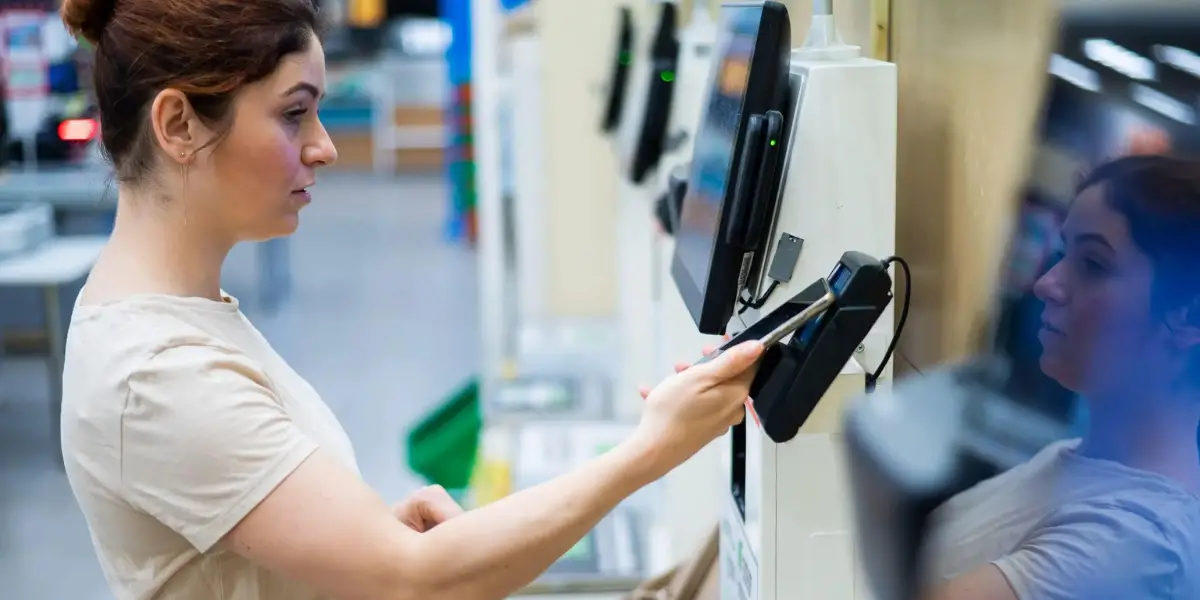A woman has been informed that the ‘trick’ she uses on the self-checkout machine at supermarkets is actually breaking the law.
The self-checkout which is present in almost every shop certainly splits opinions.
Some people love the quick, efficient method to get your shopping done, while for others it is frustrating and can make an already stressful experience worse.
One person claims to have a hack that she uses on the self-checkout. Unbeknownst to her though, the trick is actually breaking the law.
Related Article: Shoppers’ Minds Blown After Realising What Hook On Trollies Are For
Related Article: Man Jailed After Going On Shopping Spree With $515,000 Mistakenly Transferred Into His Account
Writing in a column for the outlet News.com.au, a woman named Kayla shared with lawyers and sisters Alison and Jillian Barrett that her friend will often put more expensive vegetables – such as avocado – through the self-checkout as brown onions.
“She says it’s not stealing as you’re still paying for something,” Kayla explains. “And that the supermarkets work the cost of ‘self-check-out fraud’ into their prices.
“She also claims everyone does it! I’m sure it’s stealing but she won’t listen to me.”
Kayla then asks the two lawyers if her friend is breaking the law and if there is a chance of her receiving a prison sentence.
In their response, the Barrett sisters confirm that she is breaking the law.
They explain: “This is a huge problem in Australia, with the cost of theft for retailers estimated to be a few billion dollars each year.
“This dishonest behaviour unfortunately affects us all by pushing up grocery prices.”
They describe her behaviour as ‘fraudulent’ and add that it is one of the many techniques thieves use on self-service checkouts.

There are methods that supermarkets have imposed to try and counter this behaviour – including technology that calculates the weight of your shopping against what you have claimed to have scanned on the self-checkout.
The lawyers continue: “Many shoppers know all too well how often the message ‘unexpected item in the bagging area’ will appear, requiring the attendant to assist.
“We also know how rarely attendants actually check the contents of shoppers’ bags against the scanned items.
“If they believe a theft has occurred, security officers and store staff have the right to search your friend’s bags to check the goods and the prices paid.
“An excuse like getting avocados confused with brown onions is likely not going to cut it.
“Your friend has the right to refuse a search, but the grocery store can call the police if they suspect she has been dishonest.”
They then proceed to break down the punishments Kayla’s friend could face under Australian law – stating that minor incidents of shoplifting, which involve goods valued at less than $150, are dealt with by the police rather than the courts.
The consequence of this tends to be that you have to pay the full value of what has been stolen/underpaid as well as an apology to the shop.
Related Article: Walmart Removes ‘Offensive’ T-Shirt Featuring Hidden Swear Word
Related Article: Starbucks Employee Breaks Down In Tears After They’re Scheduled To Work 8 Hours
The police may also issue a caution about not engaging in this conduct again and you would need to submit an undertaking agreeing to this.
If any of the items stolen are worth more than $30, then you might have to perform community service.
They claim that an hour of community service would need to be performed for every $5 value of the goods stolen.
The example they use is that if Kayla’s friend is stealing $40 worth of avocados, that would translate to eight hours of community service.
If you accept and follow all of these requirements, then no criminal conviction will be recorded.
However, if someone refuses to comply, the police could fine up to $1250 for breaking the agreement and they could be charged with theft – which would be dealt with by the courts.
If convicted of theft, someone could face up to 10 years of jail time.
So next time you’re looking to swipe a bit of money off your shop when going through the self-checkout, remember that you’re actually breaking the law.
Do you have a story for us? If so, email us at [email protected]. All contact will be treated in confidence.






